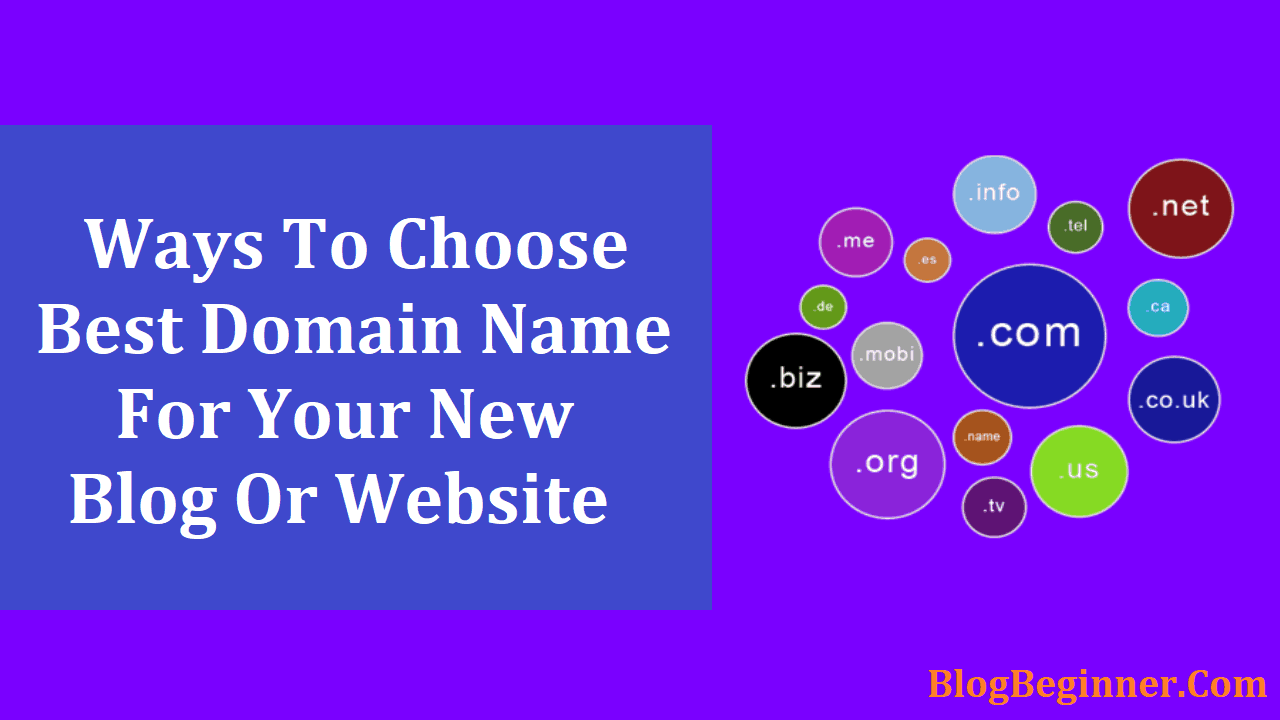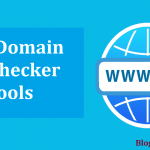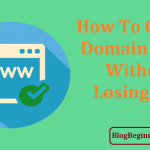With at least 1 billion registered websites today, how do you find a domain name that matches your needs, isn’t in use and is healthy?
The domain name that you select for your business or personal website represents the identity of your website (and by extension yours) to the rest of the world.
The name you choose determines whether or not people remember you and even what they will remember you by.
So, whether you are buying the best new or the best-used domain name, ensure that the name sells you and that it also portrays you in good light.
In as much as the best domain name is not necessarily the most expensive domain, looking at every angle of the domain is essential.
For instance, if you’re planning to buy a used domain, you need to make sure that the selected domain name hasn’t been penalized by Google or blacklisted.
In other cases, the domain name you’re interested in might be unavailable. This article will guide you on the best strategies you need to employ for the best domain.
Your domain name represents who you are. And it has a significant impact online.
Your domain name will influence the type of traffic you get, your search-to-social media results, your click rate, bounce rate, referral links, offline advertising, and branding among other factors.
Therefore, you must be careful about the domain name you select and where it comes from.
Below is a guide of the things to guide your search for the best domain name:
Contents In Page
1. Be careful with trademark infringement
Understandably, finding out that someone has registered the domain name you were interested in is frustrating.
However, it would be a foolish move to register the name if it’s been registered as a trademark.
Doing this not only opens you up to expensive legal battles but it might also curtail your dream of launching a website.
Since you do not want the owner of the domain name to take legal action for infringement of rights, keep searching for the next best thing.
Don’t forget that registering a domain name that resembles another brand could confuse and send away potential customers.
Use the USPTO website to check US trademarks.
You should also consult Google for names that are similar or close to the one you’re interested in.
2. Check if the domain name is pre-owned
There are over a billion websites on the internet which means that the domain name could be registered under someone else.
But if you’re lucky, you might find that the owner of the domain name is no longer using it and they could be selling it.
Even though this is a welcome relief, you need to ensure that the domain name is healthy and worth the struggle.
Domain registrars offer lists of available pre-owned domain names, but you have to conduct due diligence to ensure that the domain will help you run a profitable business.
It’s not every day that the domain name you choose helps propel your business to greater heights.
There are so many tests you need to run to determine the health of the domain name.
Though the tests take time, they’re worth the effort. Some of the tests to run and features to evaluate include:
-
General domain name health test
For this test, you need to use the Google Search Console.
This tool by Google will help you determine the overall health of the name, and it also alerts you to security issues like website hacking or penalties by Google.
-
Check for abnormal patterns in traffic
You want to know if the domain name and the website with the name had malware attacked or if it was hacked/ phished.
You also need to ensure that the site was not receiving traffic from spammy websites.
For these, you will require Google Analytics or Bing Webmaster tools then check the page traffic report.
-
Check for malicious landing pages
By running a SERP Analysis or Site Indexation, you’ll find details of malicious or spammy landing pages in your SEPRs.
This test protects you from buying a domain name previously used for porn or gambling websites.
The other things to check include the internal linking and the external linking of the pre-owned domain, as well as the anchor text usage.
The links and the anchor texts are essential in determining the relevance of the domain name in relation to the content you intend to market on your site.
3. Avoid the blacklisted domains
If the domain name you are considering was used before, you must check to ensure that Google has not blacklisted the domain name.
If you buy a blacklisted domain name, your email server’s IP address could be blocked.
4. Get a brandable domain name
As mentioned above, your domain name is crucial to your branding efforts.
Therefore, you need to ensure that the selected name sounds, feels, looks, and hears like a brand.
Your domain name is also brandable only if it is memorable and easy-to-understand.
The selected name should also be unique, and it should not be hyphenated.
Also on brandable domain names is the need to run the potential domain name through social media searches.
These tests for a brandable name represent the element of complete domination which requires you to place a lot of attention on social media.
For the best brandable domain names, consider creating new catchy words, use thesaurus for catchy existing words, and if stuck, use a domain generator.
5. Choose the right extension (always .com)
The com extension is the most popular website URL extension, and its 75 percent prevalence means that your visitors expect it and that they will visit a .com site before any others.
This domain name extension (TLD) is highly recommended because of its use in about 47 percent of most websites, and also for its familiarity.
The other TLDs you might want to consider include .org, .net, .co, .biz, or .edu.
However, you should realize that the next best alternative TLD for your website is the country-specific extension.
The country-specific extension will, however, only work well if you only wish to market your product or service within one country rather than targeting a global market.
So, if you are targeting the global market, you should avoid the country-specific TLDs.
6. Buy the other TLDs too
If you’ve secured a domain name extension and you can still find similar domain names with a different extension, you should consider buying out the alternative TLDs.
Though expensive, buying out the other TLDs will save you from unnecessary competition from other sites.
It also prevents people from creating imposter sites or people buying the alternative TLDs only to sell them exorbitantly.
Lastly, it prevents genuine visitor mixups for your site visitors.
7. Buy Misspelt domain names
Like buying off the other TLDs, buying off the misspelled domain names will increase your annual bill.
However, it is a safe move which ensures that focus is only on your website and not on the other domain.
Don’t forget to redirect the bought domain names to your domain name.
8. Keep your domain name short and concise
Did you know that in the list of the top 100 websites, the longest of these domains only has 17 characters?
And that a study by Gaebler.com notes that the top-5 websites for entrepreneurs have an average of 6 characters?
It, therefore, means that your site’s popularity depends on how short and concise it is – the name length determines its popularity.
So, for you to be on the safest side, look for domain names with the number of characters ranging from 6 to 14.
9. Easy to type
The world’s most popular websites have something in common, their domain names are easy to type/ spell.
So, in your search for the best domain name, you need to make sure that your visitors will type in your domain name without problems.
If the members of your team are unable to spell the name you have in mind, find another one.
10. Avoid the auctioned names
Most of the single-word domain names auctioned on the internet are the worst for your website because they are not memorable and also because they are too expensive.
The one-word domain names are also generic, and though they cost more, you are better off buying a low-value domain with a little more meat when buying from the online auctions.
11. Read the Fine Print
Which are the variables offered by the registrars?
Do you have to pay for registration?
What are the terms for domain name renewal?
Will you lose your domain if you forget to renew it?
Do you get free domain parking until you’re ready to use the domain?
Is domain forwarding free?
Which hosting options is registrar providing?
How much is the renewal fee?
12. Register the used domain name for a minimum of 2 years
When buying a used domain name, you need to register it under your account for at least two years.
Doing this saves time, you could lock in a lower price, and you get more SEO benefits.
Finally, if you are unable to think or find the appropriate domain name, you should use a domain name generator.








